48+ Sample Work Agreements
-
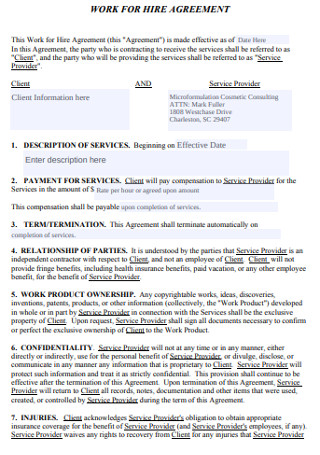
Sample Work for Hire Agreement
download now -
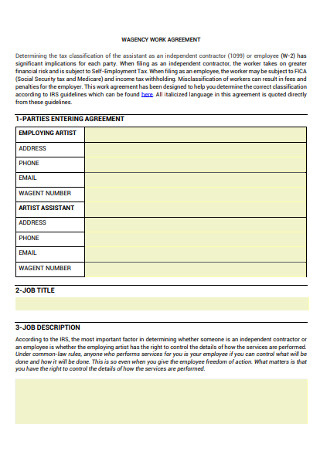
Wagency Work Agreement
download now -
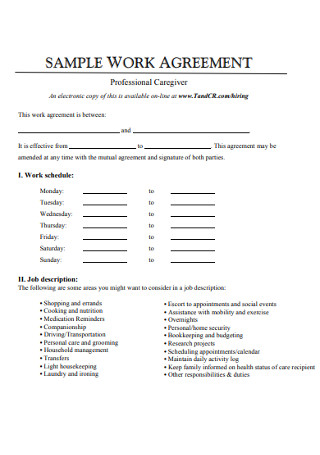
Sample Work Agreement
download now -
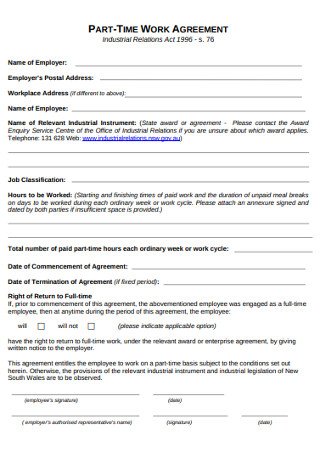
Part TIme Work Agreement
download now -
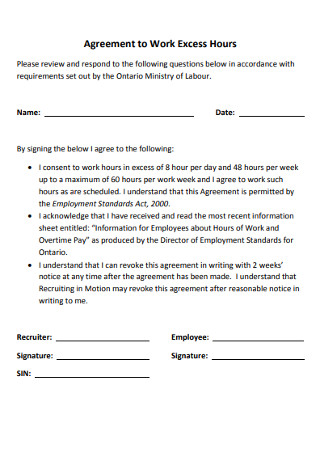
Agreement to Work Excess Hours
download now -
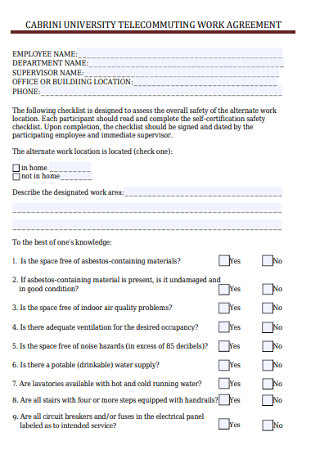
Telecommuting Work Agreement
download now -
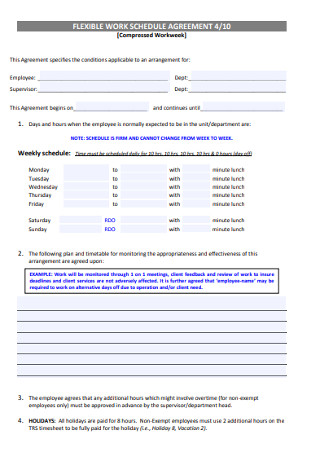
Flexible Work Schedule Agreement
download now -
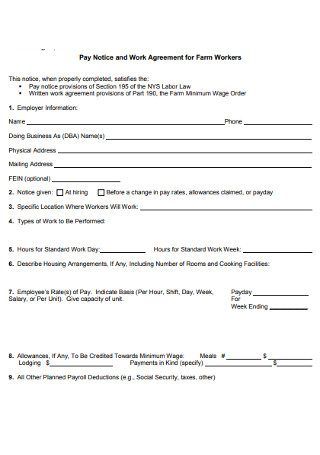
Pay Notice and Work Agreement for Farm Agreements
download now -
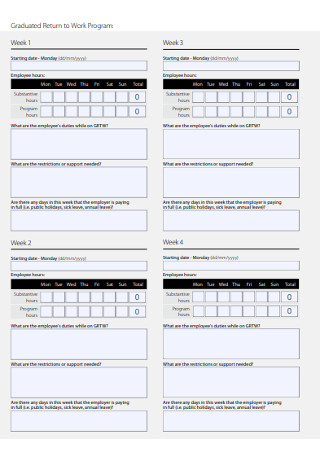
Graduated Return to Work Agreement
download now -
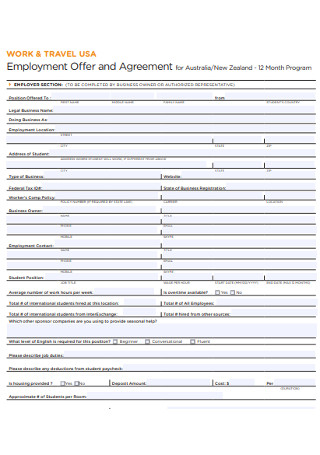
Employment Offer and Work Agreement
download now -
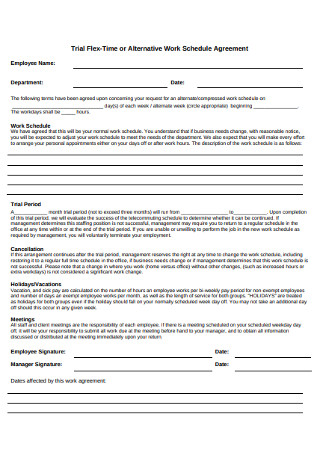
Alternative Work Schedule Agreement
download now -
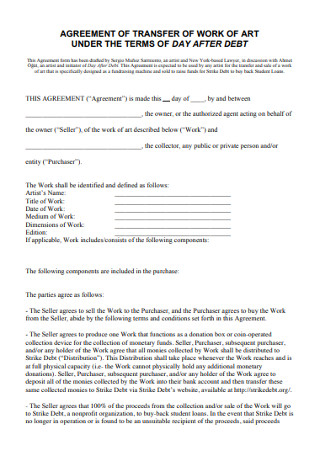
Work Transfer Agreement
download now -
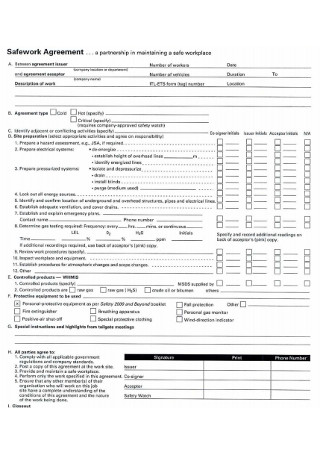
Sample Safework Agreement
download now -
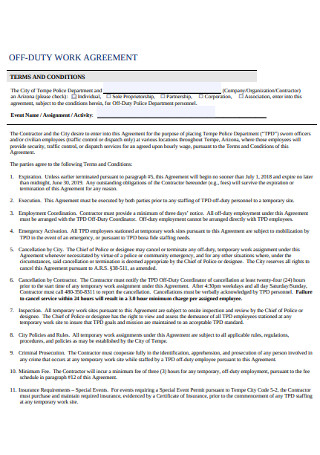
Off Duty Work Agreement
download now -

Intern Work Learning Agreement
download now -
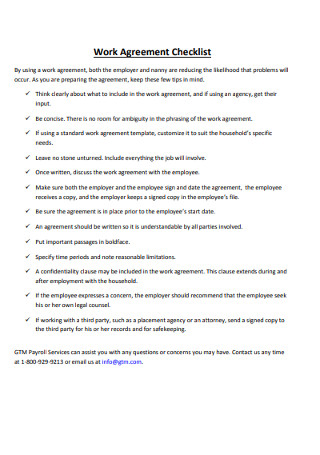
Work Agreement Checklist
download now -
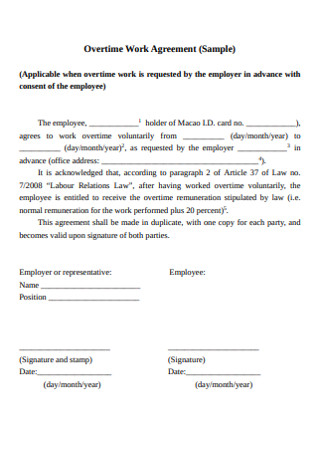
Sample Overtime Work Agreement
download now -
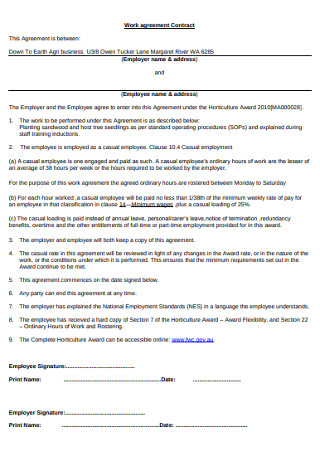
Work Contract Agreement
download now -
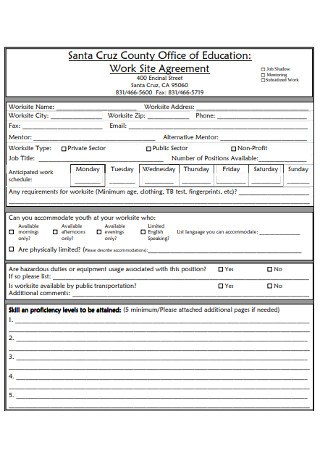
Office Work Site Agreement
download now -
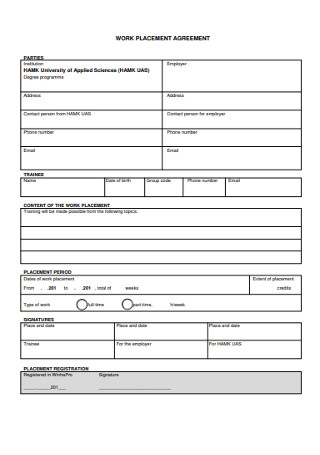
Work Placement Agreement
download now -
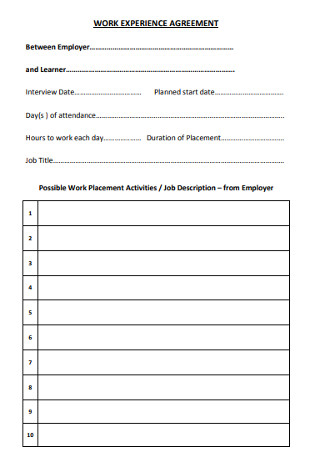
Work Experience Agreement
download now -
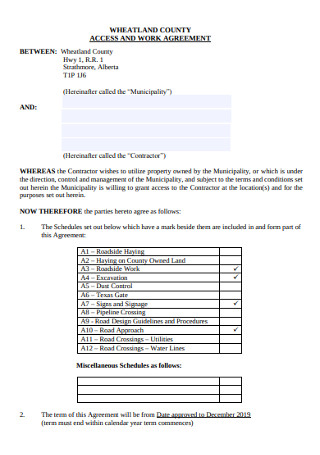
Access and Work Agreement
download now -
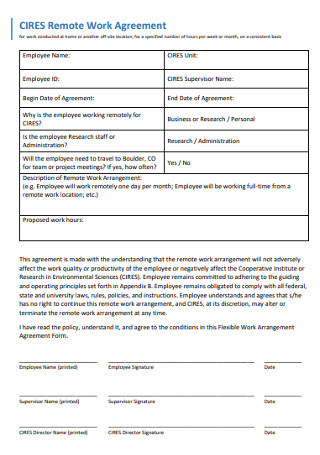
Remote Work Agreement
download now -
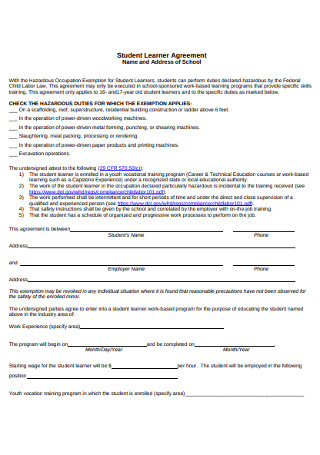
Student Learner Work Agreement
download now -
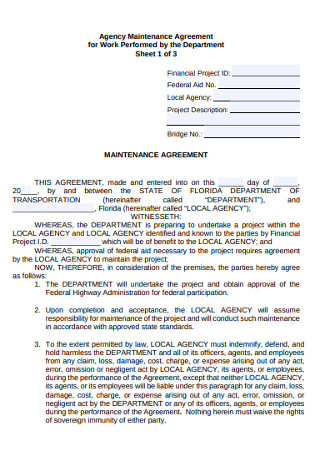
Agency Work Maintenance Agreement
download now -
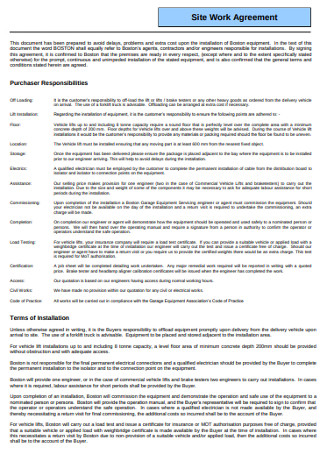
Sample Site Work Agreement
download now -
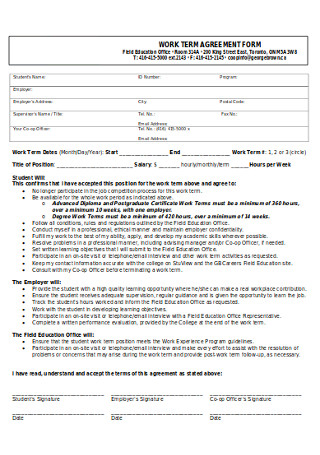
Work Term Agreement Form
download now -
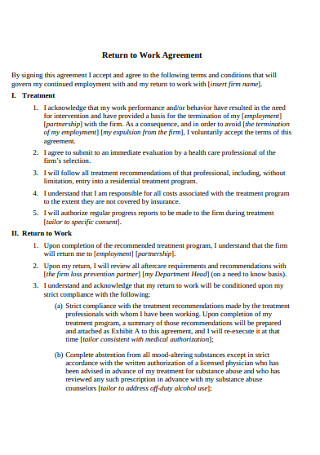
Return to Work Agreement
download now -
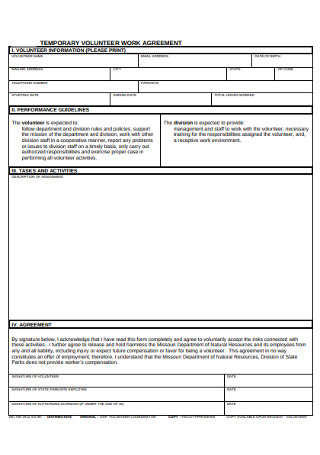
Temporary Volunteer Work Agreement
download now -
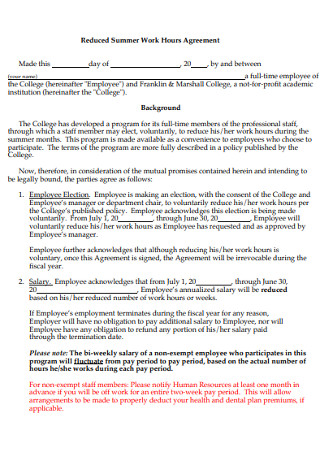
Reduced Summer Work Hours Agreement
download now -
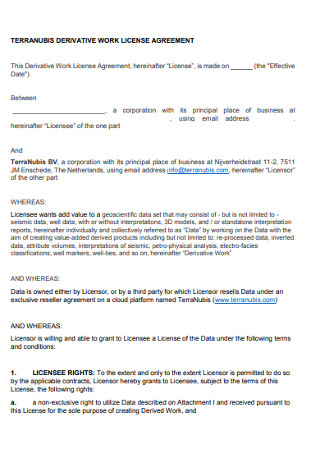
Derivative Work Licence Agreement
download now -
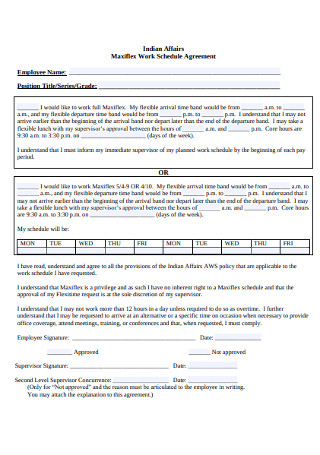
Sample Work Schedule Agreement
download now -
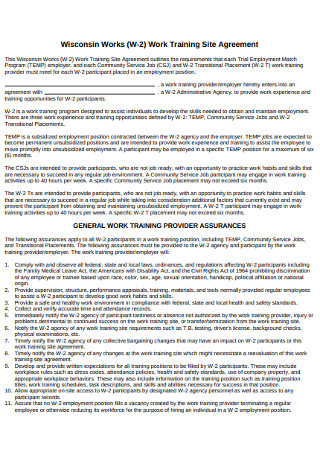
Work Training Site Agreement
download now -
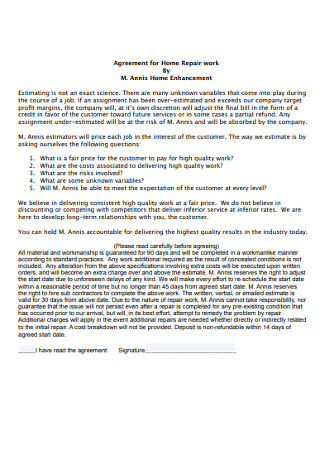
Agreement for Home Repair work
download now -
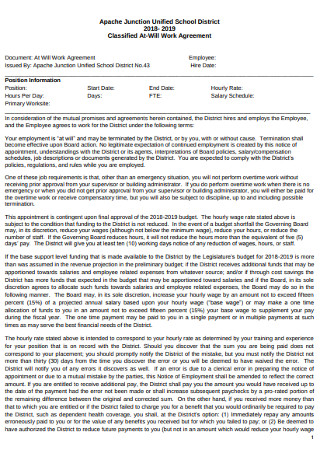
Classified At-Will Work Agreement
download now -
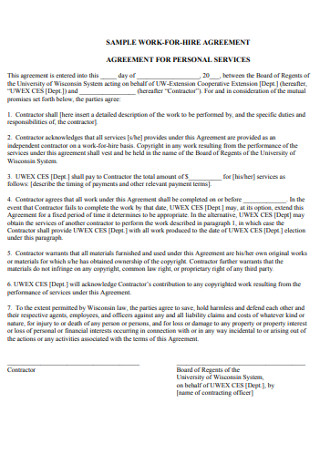
Personal Work Service Agreement
download now -
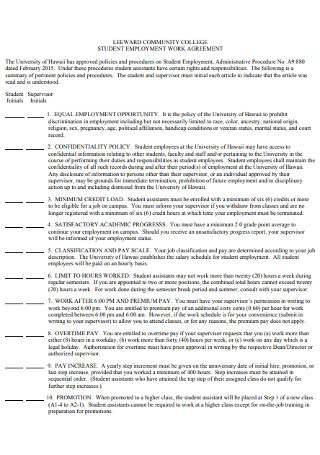
Student Employment Work Agreement
download now -
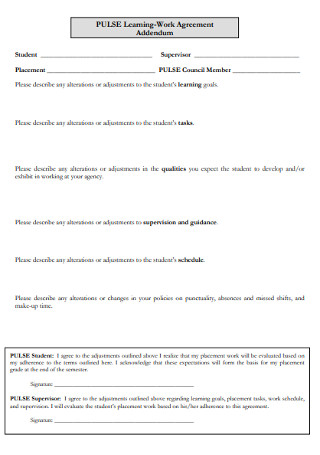
Work Addendum Agreement
download now -
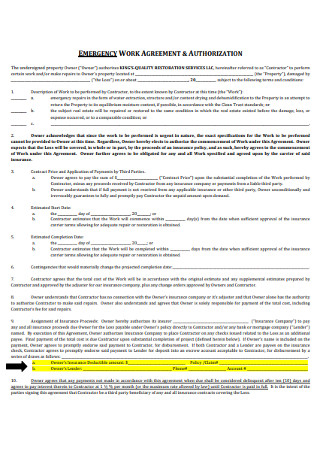
Emergency Work Agreement
download now -
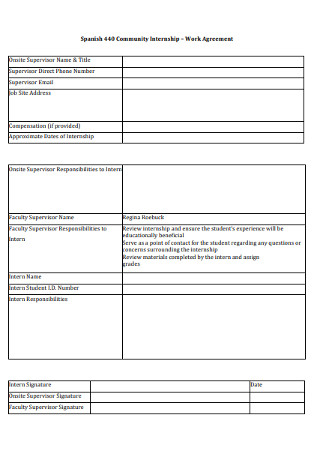
Community Internship Work Agreement
download now -
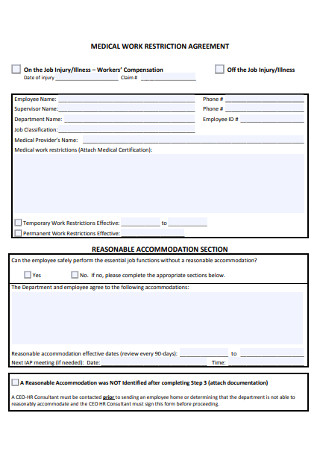
Medical Work Restriction Agreement
download now -
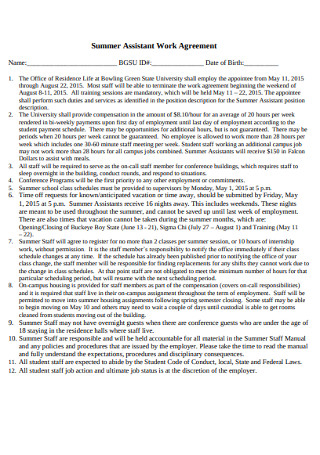
Summer Assistant Work Agreement
download now -
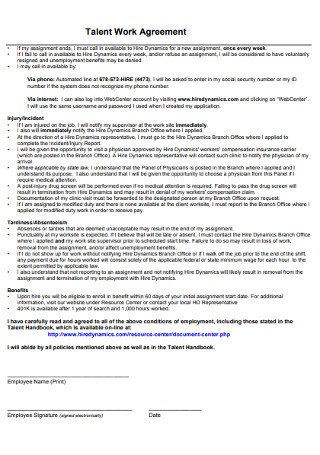
Talent Work Agreement
download now -
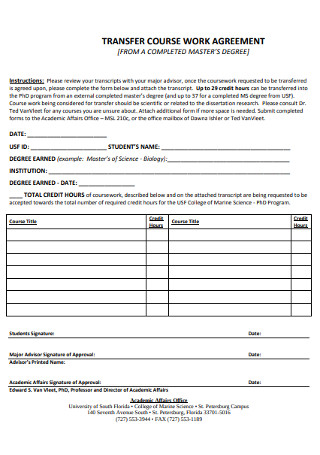
Transfer Course Work Agreement
download now -
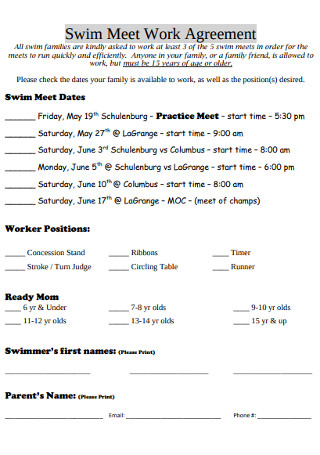
Swim Meet Work Agreement
download now -
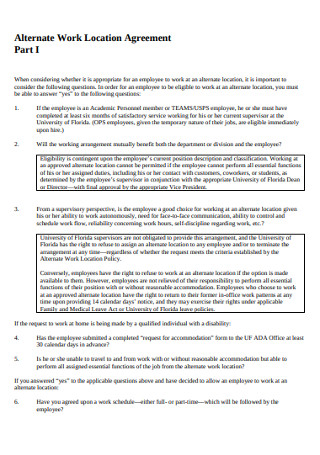
Alternate Work Location Agreement
download now -
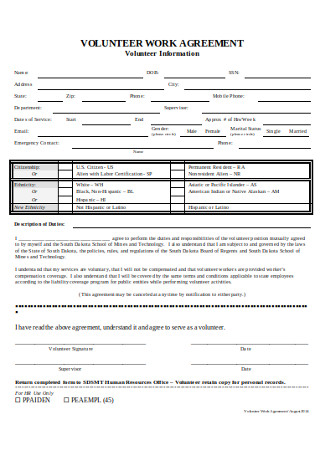
Volunteer Work Agreement
download now -
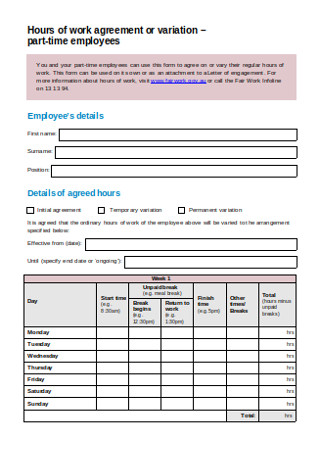
Part Time Hours of Work Agreement
download now
FREE Work Agreement s to Download
48+ Sample Work Agreements
What is a Work Agreement?
Interesting Facts Concerning Independent Contractors
How to Format a Detailed Work Agreement
FAQs
Are agreements and contracts the same?
How do you make an agreement legal?
Is a letter of agreement considered as a contract?
Will it be okay to work without a written agreement?
Is it okay to turn down a job offer after you have accepted it?
What is a Work Agreement?
Also named as an independent contractor agreement, a work agreement is a contract between an employer and a freelancer or an independent contractor. A few examples include you asking a software developer to make a website for your new business, or you paying a plumber to fix your water pipes at home, or you having an agreement with a nurse to take care of your old grandparents temporarily. Compared to an employment contract, a work agreement only lasts until the project plan is completed. In contrast to an employee, an independent contractor can work for different companies at one time. Moreover, in a work agreement, you are not obligated to pay for the taxes of the independent professional since he/she is self-employed.
Interesting Facts Concerning Independent Contractors
A study in 2019 by Erin Duffin showed that about 33% of freelancers in the U.S. were independent contractors. It is a fact that some people choose to be freelancers rather than be employees. Why? It is because some people love the thought of being their own bosses and being the masters of their own time. If you are curious about what concerns an independent contractor, here are some:
How to Format a Detailed Work Agreement
A work agreement is outlined based on what kind of service you need from an independent contractor. The following are steps you need to follow to make a basic work agreement:
Step 1: Enter the Dates and some Needed Information
The document should begin with the date the agreement is signed with the legal names of both parties written below it. Moreover, the length of the agreement can be fixed or indefinite. A fixed period allows the employer to specify the length of the agreement, while an indefinite period allows the contractor to terminate the contract anytime he/she wants.
Step 2: Input the Services Provided
This step requires you to input the general services offered by the contractor. You don’t have to be too specific with the job description so you could insert other necessary duties that are within the scope of the contract. In addition, you could also decide whether the contractor is permitted to work with other businesses or not while he/she is bound to your agreement. Both parties should agree before the decision is finalized.
Step 3: Include the Compensation
The exact fee the contractor will receive for the services he/she has provided must be included in the agreement. After the completion of all services, the contractor should send the client an invoice within a specific period of time. In case the employer terminates the contract before the fixed term, with no breach of contract on the side of the contractor, the contractor will receive a pro rata payment. Furthermore, it is up to the company or business to offer benefits to the contractor.
Step 4: Write the Necessary Provisions
You can add provisions such as non-solicitation, non-compete, and confidentiality provisions. A non-solicitation stipulation forbids a contractor from soliciting the people inside the company for his/her advantage after the contract has ended. A non-compete clause will keep a contractor from competing directly or indirectly against the company he is currently working for. Lastly, a confidentiality term will keep the marketing secrets of the company safe.
Step 5: Complete the Agreement with Boilerplate Provisions
In the final section of the agreement, some miscellaneous provisions should be added which may include the governing law, an amendment clause, assignment clause, etc. You can create the final section depending on the purpose of the contract. Remember that boilerplate provisions are necessary because they can impact your rights within the agreement. Make sure you have read through the whole agreement before you finish off with these provisions.
For companies or businesses who need the help of freelancers or independent contractors, make your agreements realistic by having a written contract with them. A simple contract won’t cost you much, in fact, it will save you money once the job has been completed the way it should be as stated in the contract. You don’t have to worry about an unfinished project or a bad finishing for your project because a contract legally binds the worker to the duties he has promised himself/herself to fulfill. On the other side of the coin, if you are a worker, make sure you are going to receive the payment you are entitled to. Neglecting the use of a worker agreement is like throwing away your money to strangers.
FAQs
Are agreements and contracts the same?
The answer is yes and no. Yes, because a contract is a specific type of agreement that legally binds the involved parties to do their duties written in official paper. No, because an agreement is a broader term that can simply be just an agreed arrangement made by two parties which can either be verbal or written. Moreover, an agreement doesn’t have a legal impact unless it becomes a contract.
How do you make an agreement legal?
An agreement becomes legal when it is enforced by state and federal laws. Every contract made should be in written form for the purpose of documentation. If you are not sure about your agreement, you can ask help from a contract lawyer and he/she will assist you in outlining and reviewing the contract to make it legitimate.
Is a letter of agreement considered as a contract?
Yes, a letter of agreement can be regarded as a contract as long as the agreement is documented in paper and is under governing laws. This agreement is used to lay out the terms and conditions two individuals have made. It summarizes the terms and conditions found in a real contract and put it together in a form of a letter. The contract only becomes legally binding when both parties have signed the agreement, yet not all states regard this type of agreement as legitimate.
Will it be okay to work without a written agreement?
If you are offering professional service, then the answer is No. A work without a contract is risky because it won’t entitle you to the payment you deserve to receive from a company. Therefore, a contract is necessary because it serves as a basis for payment, dispute resolution, client-contractor relationship, etc. Also, written agreements lay out the obligations of both parties towards each other.
Is it okay to turn down a job offer after you have accepted it?
Yes, turning down a job offer won’t be a big deal as long as an employment contract was not signed. In a survey by Robert Half, 28% out of 100% applicants turned down a job offer after receiving another offer from a better company, accepted a better offer from their recent employer, or are aware of some bad reviews about the employer. Even if it’s okay, you may need to explain why you decided to discontinue with the job offer after undergoing several interviews.
